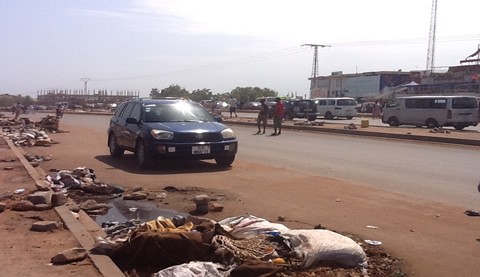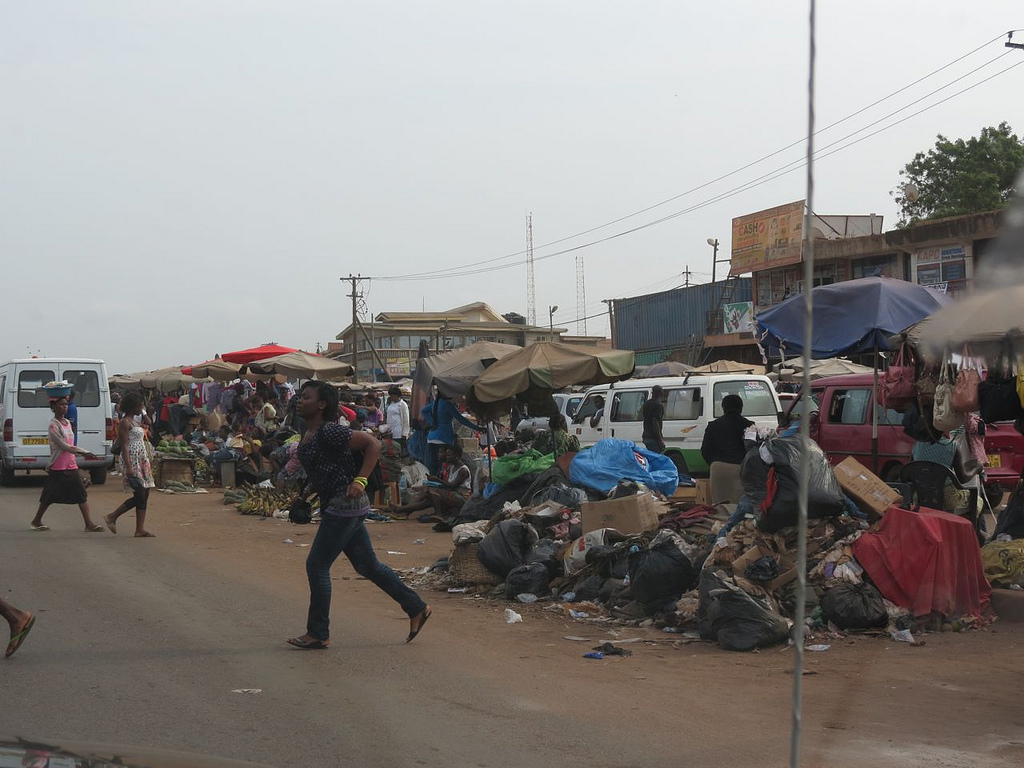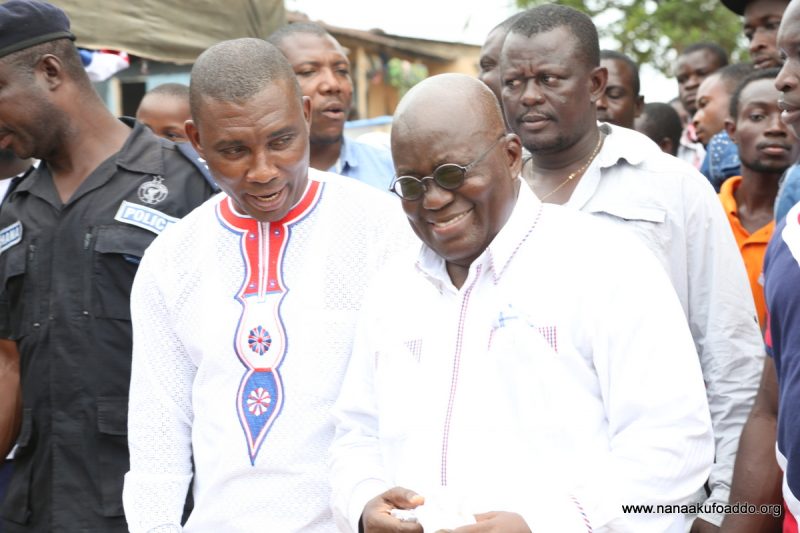Muslims residing in Ghana’s inner cities have gotten support from the government to transform their communities with a massive redevelopment program. This has become crucial because of the living conditions in these communities called ‘Zongos’ in Ghana.
Conditions there are usually deplorable, with high crime and unemployment rates and poor sanitation. There are hopes however that the new project by the government would change the state of these areas.

When Africa Feeds visited Ghana’s Mamobi Zongo or slum which is home to thousands of Muslims. Many of them have come from parts of the country and even out of the country, all seeking better living conditions.
The team met one Moctari Mumuni, a Muslim who has been living there for more than 10 years. He is in his thirties and runs a Forex Bureau business.
Moctari is comfortable with life in this community but has some concerns, from issues of sanitation, lack of job opportunities, crime and health care.
He said “It worries very much especially the unemployment, the youth, many are unemployed, you see them loitering around sitting in bases. We have to have hospitals here and then schools and then factories so that everything will go on well”.
There are over 1000 Zongo communities scattered all over Ghana with deplorable living conditions. Local authorities don’t have the capacity to deal with the challenges and that’s why, Ghana’s President Akuffo Addo is rolling out the project to redevelop and improve quality of life for these Muslims.

Shortly after his inauguration the President announced that “If we are to succeed, the development of our inner cities and our Zongos, so that they don’t become areas of despair, areas of difficulties, areas of social conflicts, the development that has to take place had to be coordinated, had to fit in with the overall national economic plan and promotion that we are engaged in”.
Those are high expectations and the minister tasked to fix the situation has a herculean task. Saddicq Boniface said “In the onset what has to happen is for us to develop the total concept, set up the goals, set up the objectives, the targets and then be able to feature the short term goals, medium term and long term. We need to go out have consultants, have researchers come together, have proper discussions”.

Not all Muslim dwellers in the Zongos however believe in the dream. Sheikh Umar Muhammad Adam is an opinion leader in the Mamobi Zongo said it will be challenging to bring the Zongos to the level of the developed communities of Ghana.
“When I hear that there is a Zongo ministry I just wonder, how do we leave the Zongo? Its not like airport residential, I don’t think that we can bring all the communities to one level” he added.

Moving these Muslims from these slums and underdeveloped communities sometimes can be challenging as those affected later regret giving in to the idea. Salifu Abdul- Mujeeb is with the Peoples Dialogue on Human Settlements, the organizing NGO for the Slum Dwellers International here in Ghana. Himself a Muslim said government’s new move should serve the social and infrastructural needs of the marginalized.
“There is much problem in terms of housing, the housing infrastructure in most of these inner cities are not in the best, so these are some of the areas we have been looking at, and so we felt, it has now given us a clear opportunity to drive the urban agenda” Mujeeb said.
So far there are no indications the government’s plan to redevelop these Muslim dwelling communities is making impact yet, but expectations are high.
Source: Africafeeds.com/ Isaac Kaledzi


